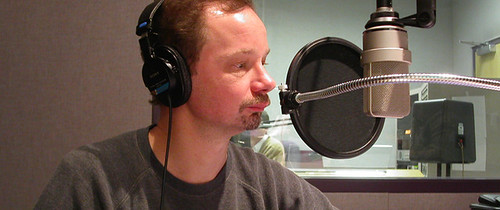Interview: Greg Kot of Ripped: How the Wired Generation Revolutionized Music (Part 4)
Kyle Bylin, Associate Editor — (@kbylin) — Part 1 & Part 2 & Part 3
Cultural critic Douglas Rushkoff has made the point that, “What [people are] missing from a cultural perspective is just because we’re not willing to pay for professional journalists doesn’t mean that corporations have become unwilling to pay for professional public relations departments.”
He continues, “So we have governments and corporations and lobbies hiring the most expressive people they can to obfuscate reality, and the people being increasing unwilling pay for professionals to deconstruct that obfuscation, to ask the follow up question that makes their illusion drop like a house of cards.”
Do we underestimate the role of the artist, writer, and journalist?
Greg Kot: How does the saying go, “You don’t know what you got till it’s gone”? Creative people – and I include journalists – all play a vital role in keeping a culture vibrant, and will continue to do so even as trafficking in intellectual property becomes a lot dicier as a means of making a living.
People who create are driven to do it, and economics plays only a small role in why they continue to do what they do. As long as we have people creating, we will always have a running commentary. It’s just that the means of accessing it and distributing it will change.
Knowing now—that you helped the general public better understand the plight of the record industry in the digital age—does that ennoble you to a certain degree? Is there anything particular that you wished you had more time to deconstruct and sort through the confusion, and to help people understand the issue better?
Greg Kot: I’m privileged to be a reporter at a time when the world is changing irrevocably. With the onset of the Music Industry 2.0, and by extension the reinvention of all intellectual property, we’re living through a historic time. The last 10 years were a pretty heady time to be alive, a time when a door was opened to a new way of creating and distributing music, a period worth documenting in a book. If there’s a frustration, it’s that I’m convinced the next 10 years will be even more exciting in terms of the possibilities that are opened up. Sequel?
Instead of trying to leverage free and artificial scarcity as mechanisms to combat this age of radical abundance, what do you think it will take for us to actually get past these means and learn how to start exchanging real value again—between people?
Greg Kot: We’ll get there. I think what’s holding us back is that a lot of license holders and corporate interests are still mired in 20th Century business models, and that has made the transition much slower and more difficult than it should be. But the promise of Music 2.0 is that the relationship between artists and fans will be broader and deeper than ever before.
For me the central point of the story chronicled in Ripped is that the relationship has already moved in that direction, irrevocably. Listeners are no longer a demographic, they’re patrons and tastemakers who now collaborate and conspire with artists. Our courts and government are slow to adapt to this rapid change, because these institutions tend to be very deliberate, but as the under-25 generations move into power, watch out.
Ripped: How the Wired Generation Revolutionized Music [Paperback]
Contact Me:
- kyledotbylinatgmaildotcom
